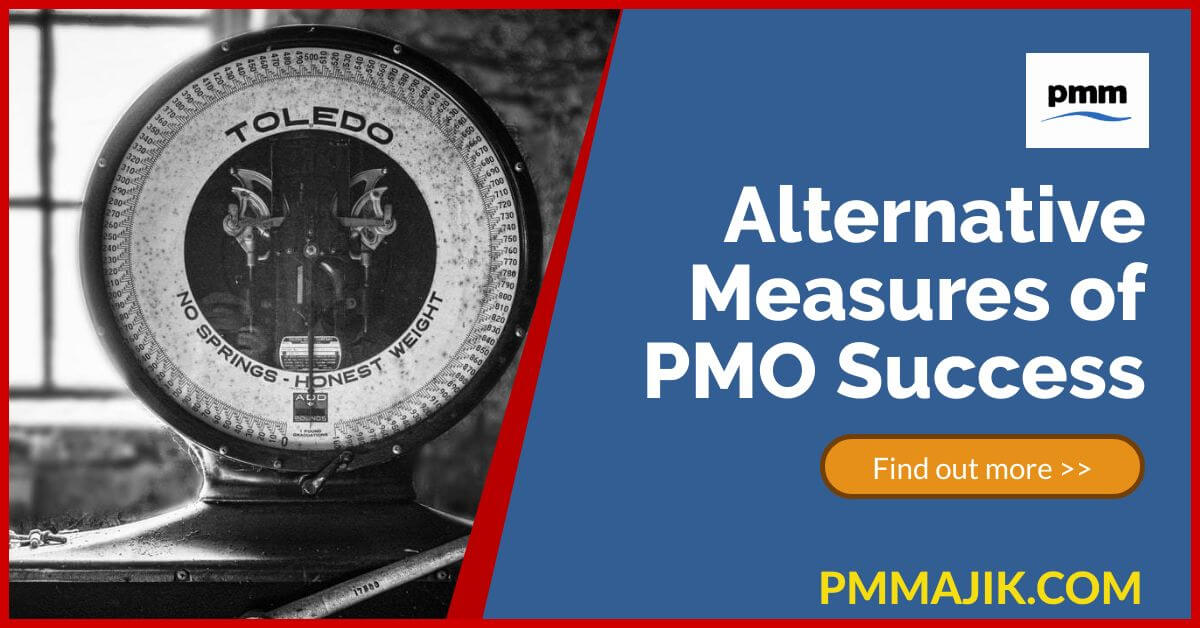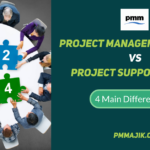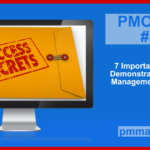Are there alternative ways to measure the success of a PMO aside from financial success and strategic achievements? As important as profits and business goals are, there are different ways to measure a PMO and understand its value.
Of course, you can’t say your PMO is a roaring success if it’s overbudget and not bringing in returns. Should money and primary business goals be the final say on whether your PMO is a success? In this article, we’re going to look at:
- Reasons why you should consider alternative measures in your PMO
- Some different measures you can use to see if your PMO is successful
- How these measures will have a positive impact on the business
Giving you ideas for changing up the type of KPIs you have in your PMO.
Why do I need alternative measures for the success of my PMO?
PMOs are all about data and analysis. Having the office measured on tangible, reportable data such as return on investment, employee satisfaction, or projects delivered on time, make for easy communication of effectiveness.
However, strong financials and big headline numbers can belie other issues in your PMO. Even the strategic goals of a business will be rather high-level with big pieces of information fed through the PMO to measure success.
There are other ways to understand success of a PMO. If the projects under your office are struggling to realise value or don’t seem able to hit a deadline, you may want to set different goals. These alternative measures can be KPIs or more informal targets. Either way, you should see success when you focus on new things.
What alternative measures can I use to understand the success of my PMO?
Along with the classic financial measures and strategy-led KPIs, you can consider measuring other elements of success in your PMO. They can be difficult to quantify, but can have a lasting effect on the functions of your office.
Momentum
Although hard to measure, it’ not impossible to understand if your projects have momentum. In terms of project management, momentum will mean:
- Meeting project timelines consistently
- Releasing completed elements often and successfully
- Projects performing over capacity
- Team is outperforming on KPIs
Momentum in a project will work to improve your overall project delivery rate. Further, you can be confident when setting future milestones and know your teams will be resilient to change.
Innovation
A business needs to run projects to bring about change; a PMO is there to ensure that change happens. A PMO and its projects need to be innovative to keep the company and projects at the forefront of its industry.
You can measure how innovative your PMO is by looking at how many new ideas are being generated from your team. You can also benchmark against the products of competitors and see what progress your projects make against their levels of change.
An innovative PMO will give higher returns on investment. The people working with your PMO will also be more engaged with their work when they can see how much change they can bring about.
Reputation
Historic perceptions of PMOs have been that they are places that generate paperwork and red tape. There is a lot of governance and compliance involved in the function of a PMO, but that doesn’t have to be a bad thing.
It’s important that a PMO engages across the business and ensures a good reputation. This can be measured during regular colleague surveys or with PMO specific questionnaires. Asking colleagues about their perceptions of the PMO will help you understand if your work is deemed as important by colleagues and worthy of support.
When a PMO maintains a good reputation, it will be able to draw on resources such as staff and space easier. Further, there will be a positive reception to the products of projects, such as new computer systems or a refreshed sales process.
The take home
Working to achieve the company’s strategic goals and contributing to a profitable bottom line are important for a PMO. Having alternative measures of success within your PMO will ensure the performance is well-rounded.
Focussing on objectives such as the momentum of projects so they get delivered on time with enthusiasm, how many new ideas and market leading innovation come of your projects, and how your PMO is perceived, will give you stronger results and positively affect your other aims.






